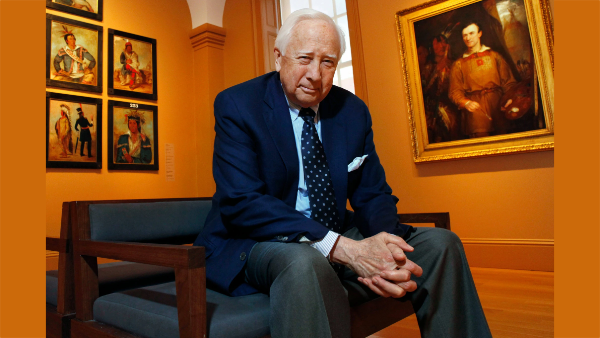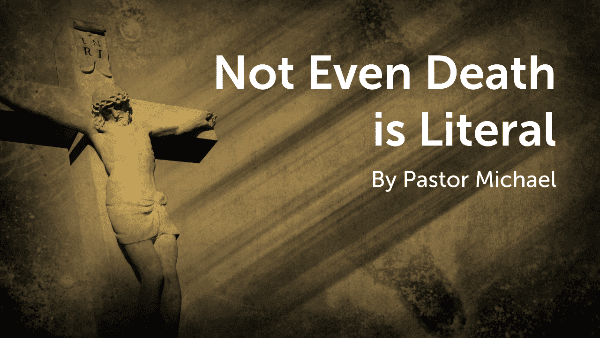You’ve heard it said Jesus literally died for our sins and was resurrected to the right hand of God. I say this is a flawed Gentile interpretation of a Jewish mystical text that the Romans were not only spiritually and intellectually incapable of comprehending but also willfully misconstrued for their political gain.
Consequently, based solely on what they could understand about Jesus and more concerned with uniting a fragmented empire than delving deeply into Jesus’ ancient Jewish Wisdom teachings, the early church broke his rebellious spirit, stripped him of his insurrectionist language, and eventually converted Jesus from a faithful Jewish servant of God to the ultimate emperor, the “King of Kings,” who, in a tradition that was common throughout the Ancient Near East, ascends to the mountaintop taking his rightful place with the other gods.
In this literal, “orthodox” interpretation of his life, Jesus replaces Jupiter as King of Kings, and the Empire begins transferring its language from the Emperor to Jesus. They are so effective in their nefarious disinformation campaign — the whitewashing of Jesus’ dark-skinned social and spiritual rebellion — that, operatively, the death of Jesus wasn’t on the cross, but at the hands of the Roman Bishops and politicians who assembled the Second Testament so it would imply Empire is good, revolution is bad. “You can worship Jesus,” the Romans declared, “but you can’t act like him.”
Today, Christians, both Catholic and Protestant, are the inheritors of a religion more closely related to Roman polytheism than Jesus’ Judaism. Few question the validity of the Roman story about Jesus, and those of us who do are labeled heretics. Which is fine with me because so was Jesus.
Unfortunately, a damaging side-effect of the literalism of a Romanized Jesus religion is that many Christians today believe the Bible is the literal, inerrant “word of God” that predicts the coming of Jesus. Twice. They think the stories, letters, songs, lamentations, meditations, and exaggerations contained within its diverse, multi-authored, continuously edited pages are a factual account of human, perhaps even cosmic, history.
That is a lot of pressure for one book. It’s also unnecessary because our cosmically questioning ancestors never intended the Bible to be an authentic account of historical events. The Bible is philosophy, not history — at least, not history the way we think of history in the 21st Century.
In the First Century CE, when the Second Testament was being composed throughout Judea, they didn’t write history based on peer-reviewed discoveries. They wrote historical fiction about concepts. We comprehend history as an archaeological, anthropological, and sociological quest for physical evidence that reveals the story of a people.

When we read the Bible the same way we read David McCullough or even Gibbon’s history of the Roman Empire, we come to all sorts of erroneous and outrageous conclusions because the Bible isn’t a modern history book.
I find it helpful to consider that nothing in the Bible is literal. While the Bible references many actual events and places, they are merely settings for the unfolding drama and spiritual revelation. I want to know what the metaphysical meanings of the stories are, not only for my own spiritual evolution but also because that’s the way the original audience heard and read them. Authentically reading the Bible means leaving literalism behind.
It doesn’t matter whether Jesus literally died, resurrected, and ascended because the story is about those concepts. We are intended to learn from Jesus, not worship him, and reading the Second Testament as a series of novels about Jesus helps us live the story with him. And as we experience Jesus’ metaphysical understanding of the universe, our minds open, too. Jesus expands our consciousness, even today, but we must let go of literalism to let him in.
Like all good Wisdom texts, the Second Testament presents its mystical ideas as a story. The Jesus Cycle is a more useful referent for the Second Testament because it helps us understand the collection as the literature it is, instead of mistakenly — and dangerously — thinking God is the supernatural author of an instruction guide to Heaven. Readers also need to keep in mind that The Jesus Cycle isn’t about Jesus. It’s about the path Jesus teaches to Oneness with God and the revelation of our interconnectivity as diverse, interdependent creatures of a creative, Conscious Universe that is fully aware of what’s going on because it is what’s going on.
By seeing beyond the clouds of our literalist minds we more deeply perceive each other’s souls. We don’t begin to achieve Jesus’ ascended consciousness without severe and difficult work. It’s insanely hard to be a student of Jesus. Following him, thinking like him, forgiving like him, staying centered in God like him, and being a social activist like him is much more daunting than praying to Jesus for the Jets to win or making Jesus your nation’s mascot.

If we are to truly call ourselves disciples of Jesus Christ, if not “Christians,” we must leave the supernatural behind us and get to the real world-changing work of ascension. Ascension — not death, not even resurrection — is the point of The Jesus Cycle. It is a story about humankind as eternal beings who continue to exist even after this body’s physical expiration date. We all can understand being human as more than physical reality. The events don’t have to be “real” for Jesus’ death, resurrection, and ascension to teach us that death is not an end but a new chapter. We come to this new, more authentic understanding of both the Bible and Jesus by putting on “the mind of Christ,” as Paul suggests in 1 Corinthians 2:13–16:
1 Corinthians 2.13–16 (CEB)
These are the things we are talking about — not with words taught by human wisdom but with words taught by the Spirit — we are interpreting spiritual things to spiritual people. But people who are unspiritual don’t accept the things from God’s Spirit. They are foolishness to them and can’t be understood, because they can only be comprehended in a spiritual way. Spiritual people comprehend everything, but they themselves aren’t understood by anyone. Who has known the mind of the Lord, who will advise him? But we have the mind of Christ.”
Even Paul recognizes the dangers of literalism, believing everything we say about Jesus must be “real.” We are interpreting spiritual things to spiritual people, he reminds us. Those who take The Jesus Cycle literally cannot comprehend what we are saying about Oneness and unity and the restructuring of the social order, or even about Jesus.
Spiritual people comprehend everything, but they themselves aren’t understood by anyone. This was and remains true about Jesus, whose spiritual teachings few Jews and zero Romans of his time seemed to understand. But today, billions of people are rediscovering Jesus’ wisdom and following him to a higher, more Christlike understanding of our interdependent humanness.
And it’s that glory of being human, of knowing we are, part and parcel, One with God, that Jesus most desires we embrace. Fully. Maybe even literally.
Amen.
Question: Does anything about “The Jesus Cycle” have to be “literally” true for you? Why or why not?


